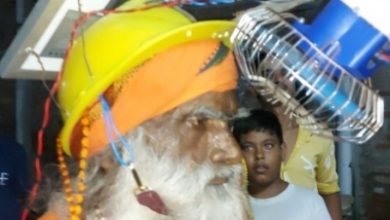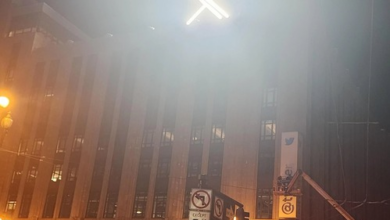Intranasal vaccine will be global game changer: Krishna Ella

Hyderabad, Sep 6 : Bharat Biotech’s iNCOVACC, the world’s first intranasal vaccine for Covid-19 which received approval for emergency use in India on Tuesday, will be a global game changer in intranasal vaccines technology and delivery systems, the vaccine maker’s Chairman and Managing Director Dr. Krishna Ella said.
Bharat Biotech International Ltd (BBIL), a global leader in vaccine innovation and developer of vaccines for infectious diseases, announced that iNCOVACC (BBV154), has received approval under restricted use in emergency situations for ages 18 and above.
iNCOVACC has the double benefit of enabling faster development of variant specific vaccines and easy nasal delivery that enables mass immunisation to protect from emerging variants of concern. It promises to become an important tool in mass vaccinations during pandemics and endemics.
With the receipt of approval, the product will be launched and available for use in due course of time, the company said.
“We are proud to announce the approval of iNCOVACC, a global game changer in intranasal vaccines technology and delivery systems. Despite the lack of demand for Covid-19 vaccines, we continued product development in intra nasal vaccines to ensure that we are well prepared with platform technologies for future infectious diseases,” Ella said.
iNCOVACC is a recombinant replication deficient adenovirus vectored vaccine with a pre-fusion stabilised spike protein. This vaccine candidate was evaluated in phase I, II, and III clinical trials with successful results.
iNCOVACC has been specifically formulated to allow intranasal delivery through nasal drops. The nasal delivery system has been designed and developed to be cost effective in low- and middle-income countries, the Hyderabad-based firm said.
iNCOVACC was developed in partnership with Washington University, St. Louis, which had designed and developed the recombinant adenoviral vectored constructs and evaluated them in preclinical studies for efficacy. Product development related to preclinical safety evaluation, large scale manufacturing scale up, formulation and delivery device development, including human clinical trials were conducted by Bharat Biotech. Product development and clinical trials were funded in part by the Indian government through the Department of Biotechnology’s Covid Suraksha programme.
“We thank the Ministry of Health, the CDSCO, Dept of Biotechnology, Govt of India, and Washington University St. Louis for their support and guidance. iNCOVACC has been designed for efficient distribution and easy administration,” Dr Ella said.
Clinical trials were conducted to evaluate iNCOVACC as a primary dose schedule, as heterologous booster dose for subjects who have previously received 2 doses of the two commonly administered Covid vaccines in India.
Phase III trials were conducted for safety, and immunogenicity in about 3,100 subjects, in 14 trial sites across India.
Heterologous booster dose studies were conducted for safety and immunogenicity in about 875 subjects, with BBV154 intranasal vaccine administered post 2 doses of the two commonly administered Covid-19 vaccines. The trials were conducted in 9 trial sites across India.
Immunogenicity was evaluated through serum neutralising antibodies by PRNT assays and serum IgGs through ELISA’s. To evaluate vaccines taken through the intranasal route, IgAs were evaluated by ELISA in serum and saliva. Evaluation was also carried out for ability of iNCOVACC to elicit long term memory T and B cell responses against the ancestral and Omicron variants.
iNCOVACC was evaluated to determine its impact on safety. The reactogenic events and adverse events that were documented during the trial were highly comparable to published data from other covid-19 vaccines. Product development data will be submitted to peer reviewed journals and will be made available in the public domain, BBIL said.
The intranasal vaccine is stable at 2-8 degrees Celsius for easy storage and distribution. Bharat Biotech has established large manufacturing capabilities at multiple sites across India, including Gujarat, Karnataka, Maharashtra, and Telangana.






